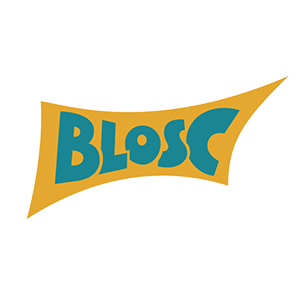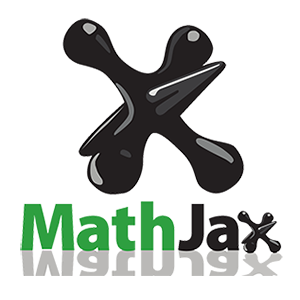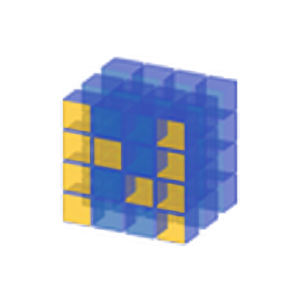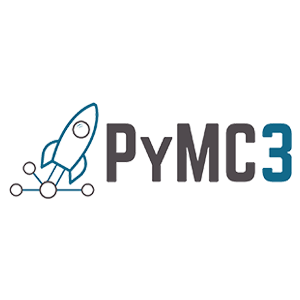The NumFOCUS Awards recognize members of the community who have made substantial contributions to our projects, to our ecosystem, and to the open source scientific computing movement. These awards are meant to highlight exceptional technical, community, and organizational efforts supporting our projects.
Additionally, we honored outstanding new contributors to our community; these contributors were selected by the leaders of their project for particular recognition.
NumFOCUS congratulates and thanks all honorees for their outstanding contributions to our community.
Community Leadership Award
Reshama Shaikh


Community Leadership Award
Matti Lyra
Project Sustainability Award
Marc Garcia


Corporate Stewardship Award
Matt Greenwood
New Contributor Acknowledgments
Astropy

The Astropy project is pleased to recognize the outstanding contributions of Brigitta Sipőcz over the last 5 years. Since her first involvement as a Google Summer of Code student working on the photutils package, Brigitta has become an indispensable member of the team and now has a long list of roles in the project, including core package release manager, GSoC coordinator, and maintainer for numerous infrastructure packages. She is one of those people that seem to be everywhere at once, tirelessly contributing pull requests, issue comments, slack discussion, and frequent nudges to other developers to keep moving forward on their work. At meetings she is known well for her sharp insights and speaking her mind. Brigitta has truly made a difference for our project and we are thankful.
Blosc

Aleix is responsible for most of the implementation of Caterva, the multidimensional layer on top of Blosc2, as well as cat4py, its Python wrapper. Despite being a newcomer to the Blosc ecosystem, he delivered very good quality code and new ideas for the implementation. All in all, we had a very productive collaboration which led to a nice and stable codebase for Caterva/cat4py.
Cantera

Dr. Schoegl has been a Cantera user for many years, and started contributing this spring. He has contributed 15 new issue reports and 21 pull requests (13 merged) since April. Dr. Schoegl has also responded to dozens of questions on our User Group, and has developed a detailed procedure showing how Cantera can be extended by using C++ and Cython. He has demonstrated a true commitment to the Cantera community and we are grateful for his contributions!
conda-forge

Sophia Castellarin has championed the effort to make the channel CDN stable and create a RSS feed for the added packages. This invaluable service allow developers, packagers and users to quickly check if a new package is available and greatly reduces the time for debugging and/or deploying the new packages.
FEniCS

Igor has been a Google Summer of Code student for the last two summers, and made significant contributions to the FEniCS code base, first with Complex Number support, and now with better support for Mesh Partitioning. He has also done this with incremental pull requests, and an open attitude to learning. He has communicated well with the other developers, earning well deserved respect.
Julia

Logan has been instrumental in helping Julia users on StackOverflow, curating and answering questions, as well as organising other volunterers in improving the project’s StackOverflow content.
Mosè Giordano
Mosè has been amazingly productive creating binary artifacts for Julia pa.ckages He has quickly become the nominated expert in this area, and has been willing to help many projects with their binary dependency needs.
MathJax

Although MathJax is now over 10 years old, Volker came to use relatively recently as an expert in speech generation in scientific contexts. His contributions to MathJax have made it one of the premier solutions for users with assistive needs who wish to read web-based texts that contain mathematical notation. Volker’s work has been the subject of several grants and numerous papers and presentations, and it has significantly enhanced MathJax’s capabilities.
NumPy

We, the NumPy Steering Council, would like to recognize Inessa Pawson as a new contributor to NumPy. Inessa started contributing to NumPy only this summer, after learning at SciPy’19 that NumPy is in real need of help in many areas. In the last few months she has contributed to our website redesign, to efforts to attract new maintainers and contributors, to fundraising, and to outreach and marketing. All the new ideas Inessa has contributed have had a very positive impact on the dynamics of the project, and her experience running an educational nonprofit is proving valuable. As one particular example, she joined our website redesign team and created a visual site map which allowed us to evaluate several layouts quickly and optimize the design for new users and potential contributors. We are really happy to have Inessa on the team!
Kevin Sheppard
We, the NumPy Steering Council, would like to recognize Kevin Sheppard as a new contributor to NumPy. Kevin started contributing to NumPy two years ago, with a clear focus on the numpy.random module. He spent a large amount of effort to build a new random number generator framework that could completely replace the old NumPy code. This in itself was a major undertaking, and one of the largest improvements to NumPy in years. We also very much appreciate the manner in which Kevin engaged with the whole team and external contributors in integrating his new framework into NumPy. He navigated endless discussions, was and is very flexible and quick in making design and scope changes, and responds to questions and issues quickly, patiently and expertly. We are really happy to have Kevin on the team!
Project Jupyter

We first met Saul in person when he was awarded a student scholarship to JupyterCon 2017. It wasn’t long before he was contributing to core areas of Jupyter. Today Saul is contributing significantly across a wide range of efforts in the JupyterLab organization, from the core architecture to real-time collaboration, commenting, data visualization, and data catalog integration. We’d like to take this opportunity to thank him for all of his work!
PyMC3

A biostatistics PhD student by day, Demetri was awarded a GSoC slot this past summer to work on PyMC3. He continued the tradition of some of our past students by adding a massive contribution to the project in a single summer, implementing differential equation solvers. This opens up a whole range of applications for PyMC3 related to the modeling of dynamical systems.
Luciano Paz
Luciano has been a key contributor to PyMC3 since March 2018. His contributions are notable because he has taken on many of the difficult and unpleasant issues with our code base: refactoring poorly-implemented functionality, fixing long-neglected issues, and taking on PyMC’s notorious data shape problems. Not always the most glamorous contributions, but they have noticeably improved the usability and reliability of PyMC3.
rOpenSci

Melina Vidoni joined rOpenSci’s team of software peer review editors in 2019. She immediately began making contributions beyond that role, in addition showing leadership in broadening the reach and accessibility of rOpenSci and the R language. Melina is a Lecturer in Computer Science & Software Engineering at RMIT University in Melbourne, Australia, and has a PhD in Information Systems Engineering. Within one month of moving from Argentina to Australia in June 2019, Melina moderated an rOpenSci Community Call on involving multilingual communities in our peer review process and open source projects, and one week later spoke about “Open science through rOpenSci” at R-Ladies Melbourne’s inaugural event. (R-Ladies is a world-wide organization to promote gender diversity in the R community.) Melina voluntarily took on a larger editorial workload by taking a rotation as Editor in Chief for rOpenSci software peer review. Melina has been active in broadening the reach of R and rOpenSci to underrepresented groups around the world. She is part of the team who translated the seminal online book “R for Data Science”, by Hadley Wickham, into Spanish. In 2018 she founded R-Ladies Santa Fe, in Argentina.
Will Landau (William Michael Landau)
Will Landau is an outstanding advocate for rOpenSci while making truly valuable technical and community contributions. Will is the creator and maintainer of the drake R package for reproducible workflows at scale, which passed rOpenSci software peer review and was published in JOSS in 2018. He is a Research Scientist in Indianapolis, Indiana at Eli Lilly and Company where he develops methods and software for statisticians and has PhD in Statistics from Iowa State University. Will is perhaps the ideal example of a developer who is proactive in seeking input on his work, actively listening, and quickly, thoroughly, and warmly responding to feedback through multiple channels, and incorporating that feedback in his work. Will’s documentation is outstanding. In September 2019, Will presented drake in an rOpenSci Community Call attended by 65 people from 8 countries and wrote up answers to everyone’s questions following the event. The real prompt for nominating Will, is his generosity in continually giving public credit and appreciation to people and organizations with whom he has collaborated. He is an excellent role model and inspiration in the open source scientific computing movement.
SciPy

We, the SciPy core team, would like to recognize Kai Striega as a new contributor to SciPy. Kai started contributing to SciPy just over one year ago, and in that year he has made a lot of contributions to the optimization and linear algebra functionality in SciPy. His communication style on issues and review on other PRs have been very valuable. One particular set of contributions we’d like to highlight is a major refactoring of the linear programming routines in scipy.optimize – this was a pain point for years, and Kai managed to squash many bugs in one fell swoop that helped bring SciPy’s implementation to be on a par with the best open source solvers. We are very happy to have Kai on the team!
Peter Bell
We, the SciPy core team, would like to recognize Peter Bell as a new contributor to SciPy. Peter started contributing to SciPy half a year ago. In that short time he has made a significant impact on the project. During his GSoC project Peter designed and integrated a new module, scipy.fft, to replace the old scipy.fftpack code. This is the first new submodule added to SciPy in many years, and the amount and quality of the work Peter did was well beyond our already high expectations. During and after GSoC Peter improved other modules, reviewed pull requests of other contributors, and took on many other maintainer tasks. This is exactly what we’re hoping for when we engage new contributors, seeing them grow into maintainers. We are very happy to have Peter on the team!
Shogun

Gil has joined Shogun project 10 months ago and during that time he has been a key contributor in all the different efforts of making Shogun a more stable and easier to use machine learning library.
SymPy

Oscar has been among the most active contributors to SymPy in the past year. He has contributed over 40 pull requests of his own, merged over 100 pull requests, and helped review countless others.
S.Y. Lee
S.Y. Lee has been among the most active contributors to SymPy in the past year. He has contributed over 100 pull requests of his own, merged over 30 pull requests, and helped review countless others.